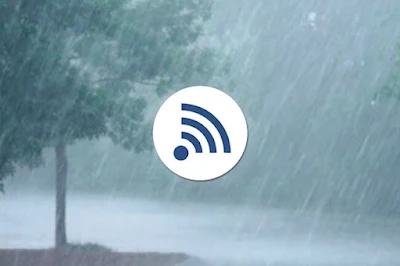Does bad weather, including rain, actually affect your internet connection? Is it a myth or a fact?
Rain has been the norm in many parts of the world in recent days. Rainfall is typically more frequent in some places, but this time it is also having an impact in places where people are not used to it. However, a lot of people are curious if this can impact the quality of their internet connection in addition to the disruptions brought on by rainy days and inclement weather. Is it real or just a myth?
Does your internet connection actually suffer when it rains?
The answer to this question is actually complicated because it depends on a number of variables, including the connection technology. According to experts, weather typically has no bearing on the quality of connections for the majority of users utilizing Wi-Fi or mobile data at home. There are some exceptions, though. The waves that transmit signals indoors can be impacted by excessive humidity, though this effect is typically negligible.
However, severe thunderstorms or a lot of snow can interfere with a mobile phone's signal, particularly in rural areas with inadequate antenna infrastructure. These effects are greatly diminished in urban areas due to the higher antenna density.
What happens if I use satellite to access the Internet?
Climate change has little effect on coaxial cable or fiber optic connections, but it has a significant impact on satellite internet. Rain, thunderstorms, or even snow can interfere with this system's ability to transmit signals between the satellite dish and the orbiting satellite, potentially leading to total signal loss.
Only in severe circumstances, like extremely powerful storms or high winds that can harm physical infrastructure, like poles or cables, does bad weather become an issue for cable or fiber optic communications.
Professional advice
When it comes to internet performance, experts generally concur that heat is worse than rain, especially during extremely hot weather when your router is vulnerable to overheating.
As a result, these devices should always be placed in high places, away from moisture or direct sunlight, and ideally in a fairly central area. Therefore, although bad weather may have an impact on certain circumstances, it should not be the most frequent occurrence worldwide; rather, it should be the opposite.


